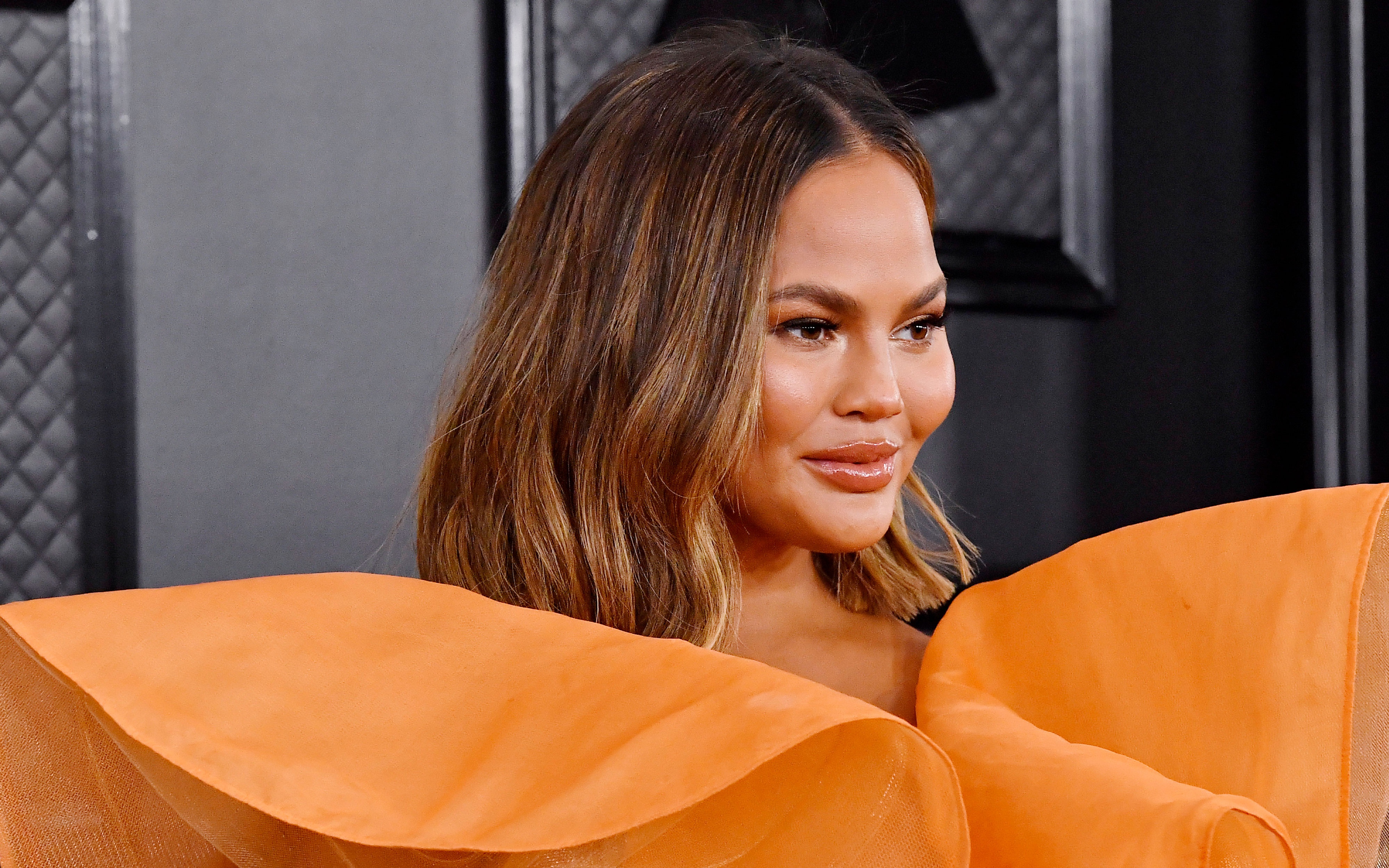“I want you to know I’ve been sitting in a hole of deserved global punishment, the ultimate ‘sit here and think about what you’ve done.'”
Several weeks have gone by since Chrissy Teigen’s history of online bullying was exposed to the world, and in typical celebrity fashion, she’s come back with a lengthy apology letter. “I want you to know I’ve been sitting in a hole of deserved global punishment, the ultimate ‘sit here and think about what you’ve done,’” Teigen wrote in a statement posted to Medium and Instagram on June 14 acknowledging the old tweets in question. “I was a troll, full stop. And I am so sorry.”
The model and TV personality built a career by crafting a very specific persona on Twitter. In the early 2010s, she used her social media-savviness to make a name for herself on the app. As Vox points out, Teigen fit the “cool girl” archetype: a common trope that depicts a woman who embraces traditionally masculine activities (like drinking beer, eating with abandon, watching sports) while remaining feminine enough to be seen as “hot.” Teigen, who has her own line of cookbooks and has graced the cover of Sports Illustrated as a bikini model, embodies this. Most importantly, Teigen possesses a too-cool-to-care attitude that has made her even more notorious on social media. During his four-year presidency, Teigen’s merciless Twitter jabs at Donald Trump, followed by his very public reactions (in which he blocked her), landed her on more people’s radars as a hilariously outspoken online personality.
But Teigen’s recent “cancellation” happened the same way her accelerated fame did — via her tweets. It all started in March 2021 when non-binary TV personality Courtney Stodden called out Teigen for bullying them in 2011. At that time, a 16-year-old Stodden was married to 50-year-old actor Doug Hutchison. Despite Stodden, a teenager, being the victim of abuse and a power imbalance in a marriage to a middle-aged man, they were on the receiving end of most of the media backlash and name calling about their unorthodox relationship. Teigen, who was approximately 25 at the time, directed multiple harassing tweets at Stodden, writing that she fantasized about Stodden dying and saying, “I hate you.”
In response to this being brought to light, Teigen took to Twitter to apologize in May. The thread opened with, “Not a lot of people are lucky enough to be held accountable for all their past bullsh-t in front of the entire world,” and she continued by saying she was “ashamed” of her behaviour towards Stodden. This apology was off-putting to some, especially Stodden, who responded on Instagram writing that the apology didn’t feel sincere since they were still blocked from viewing Teigen’s Twitter.
Stodden speaking out opened a pandora’s box of Teigen’s past social media comments. In 2013, Teigen tweeted about nine-year-old actor Quvenzhané Wallis, writing, “Is it okay to call a small child cocky?” and adding, “I am forced to like Quvenzhané Wallis because she’s a child right? Okay fine.” A tweet of Teigen making triggering comments about Lindsay Lohan inflicting self-harm also resurfaced, along with countless other equally terrible tweets.
Since then, Teigen has faced the most tangible effects of her actions: brands cutting ties with her. Her Cravings cookware line has disappeared from Macy’s, a social media marketing photo of her hasn’t been posted on the cleaning product line she co-launched with Kris Jenner in over a month, and she’s stepped away from a role on the next season of Netflix’s Never Have I Ever.
Whether too little too late or not, Teigen’s June 14 apology feels decidedly more serious and intentional than her previously mentioned Twitter thread. “When I first started using social media, I had so much fun with it. I made jokes, random observations,” she explained. “In reality, I was insecure, immature and in a world where I thought I needed to impress strangers to be accepted. If there was a pop culture pile-on, I took to Twitter to try to gain attention and show off what I at the time believed was a crude, clever, harmless quip. I thought it made me cool and relatable if I poked fun at celebrities.”
“Now, confronted with some of the things that I said, I cringe to my core. I’ll honestly get sharp, stabbing pains in my body, randomly remembering my asshole past, and I deserve it.”
On Instagram, Teigen’s post is flooded with comments from accounts with blue checkmarks, offering messages of support and commending her for her growth. However, some are quick to point out that the only people who can actually accept the apology are those that Teigen has targeted, with one user writing, “I’d like to see you donate money and your TIME to some anti-bullying campaigns, after school programs, and other avenues to help victims dealing with the abuse that you dished out.”
At the end of the day, whether she is forgiven or not, Teigen and her career will surely recover — she has access to resources and a seemingly strong support system. The real question is whether Teigen’s victims will be okay after having their trauma revisited online and seeing the internet debate whether or not their perpetrator was too harshly judged.
